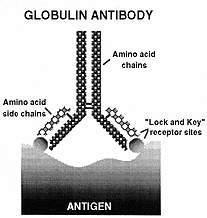The heap seeds has enough essential amino/fatty acids to maintain a health life, It would probably be better for a person to only eat hemp seeds their entire life than eat some of the shit you can buy at the super market.
It can also be prepared as a tea and made into milk, its leaves would go great in a salad.
One acre of hemp produces as much cellulose fiber as 4.1 acres of trees (Dewey & Merrill, "Bulletin #404," U.S. Dept. of Ag., 1916), hemp is the perfect material to replace tress for pressed board, particle board and concrete construction molds.
Hemp has been used throughout history for carpet backing. Hemp fiber has potential in the manufacture of strong, rot resistant carpeting eliminating the poisonous gases of burning synthetic materials in a house or commercial fire, along with allergic reactions associated with new synthetic carpeting.
For thousands of years, virtually all good paints and varnishes were made with hemp seed oil and/or linseed oil.
In Europe it is legal for Hemp Beer to contain up to 0.3 mg of THC!
A study published in the July 1998 Proceedings of the National Academy of Sciences, found that anandamide inhibited the growth of breast cancer cells. Anandamide is the naturally occurring body chemical which is mimicked by cannabinoids.
It can also be prepared as a tea and made into milk, its leaves would go great in a salad.
One acre of hemp produces as much cellulose fiber as 4.1 acres of trees (Dewey & Merrill, "Bulletin #404," U.S. Dept. of Ag., 1916), hemp is the perfect material to replace tress for pressed board, particle board and concrete construction molds.
Hemp has been used throughout history for carpet backing. Hemp fiber has potential in the manufacture of strong, rot resistant carpeting eliminating the poisonous gases of burning synthetic materials in a house or commercial fire, along with allergic reactions associated with new synthetic carpeting.
For thousands of years, virtually all good paints and varnishes were made with hemp seed oil and/or linseed oil.
In Europe it is legal for Hemp Beer to contain up to 0.3 mg of THC!
A study published in the July 1998 Proceedings of the National Academy of Sciences, found that anandamide inhibited the growth of breast cancer cells. Anandamide is the naturally occurring body chemical which is mimicked by cannabinoids.
A study published in a 1975 edition of the Journal of the National Cancer Institute, which showed that THC slowed the growth of lung cancer, breast cancer and virus-induced leukemia in rats.
Globulins are one of seven classes of simple proteins. Simple proteins are constructed from amino acids and contain no non-protein substances. Globulins are in seeds and animal blood. Edistins are found in seeds; serum globulin is in blood. Edistins are plant globulins. And globulins along with albumins are classified as globular proteins. All enzymes, antibodies, many hormones, hemoglobin and fibrogin (the body converts fibrogin into non-soluble, fibrin, a blood clotting agent) are globular proteins. They carry out the main work of living.
Globulins are one of seven classes of simple proteins. Simple proteins are constructed from amino acids and contain no non-protein substances. Globulins are in seeds and animal blood. Edistins are found in seeds; serum globulin is in blood. Edistins are plant globulins. And globulins along with albumins are classified as globular proteins. All enzymes, antibodies, many hormones, hemoglobin and fibrogin (the body converts fibrogin into non-soluble, fibrin, a blood clotting agent) are globular proteins. They carry out the main work of living.
Antibodies are globulin proteins programmed to destroy antigens (any substance eliciting a response from lymphocytes: bacteria, viruses, toxins, living and dead tissue, internal debris, etc.). Circulating in blood plasma like mines floating in a harbor antibodies await contact with the enemy, then initiate a cascade of corrosive enzymes that bore holes in the antigen surface causing it to break apart.
Antibodies are custom designed to neutralize or disintegrate one specific type of antigen. White blood cells called B cell lymphocytes seek out and lock-on to antigenic proteins or sugars on the invader's surface. The B cell then uses that lock and key pattern to make antibodies tailored to that antigen only. It also will make clones of itself called plasma cells. Most of the clones begin producing antibodies for that antigen. Others become memory cells which may spend years wandering through the blood stream looking for that specific antigen. If the body is exposed to it again the memory cells lock-on to one and begin producing plasma cell clones and a flood of antibodies that wipe out the invader. One lymphocyte can divide into hundreds of plasma cells in a few days. A mature plasma cell can make about 2000 antibodies every second for the few days it lives. This is how the body acquires immunity.
The body's ability to resist and recover from illness depends upon how rapidly it can produce massive amounts of antibodies to fend off the initial attack. If the globulin protein starting material is in short supply the army of antibodies may be too small to prevent the symptoms of sickness from setting in.
Hemp seed is the premier plant-seed provider of globulin starting material -- the highest in the plant kingdom. Eating hemp seeds will insure the immune system has the reservoir of immunoglobulin resources needed to make disease destroying antibodies.

Linoleic acid (LA) and linolenic acid (LNA) cannot be made by the human body and must be obtained through the diet, so they are called essential fatty acids (EFA). LA and LNA are the most important fatty acids in human nutrition and health. They are involved in producing life energy from food and the movement of that energy throughout the body. EFAs govern growth, vitality and state of mind. Still, much is unknown about their functioning in the body.

No comments:
Post a Comment